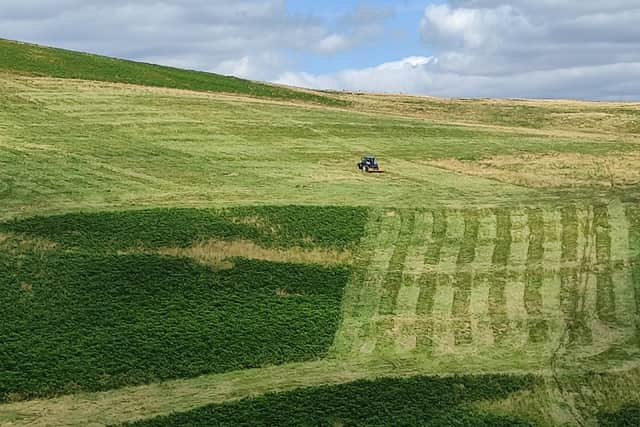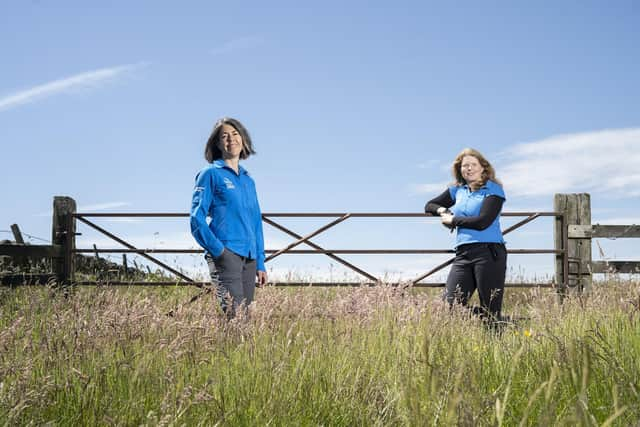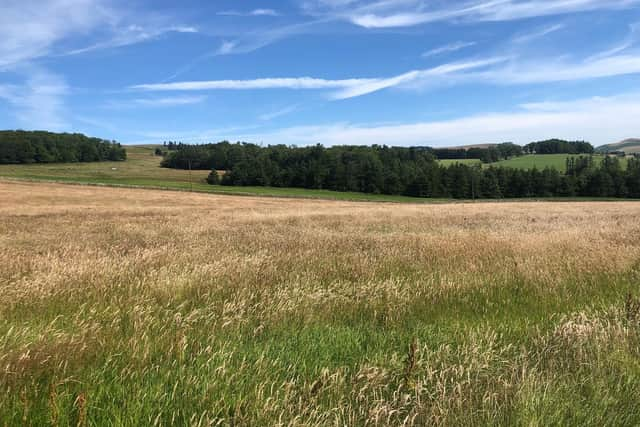Coquetdale farmers receive funding to improve habitats
and live on Freeview channel 276
Northumberland National Park Authority has awarded over £500,000 to farmers and landowners for projects which will enhance farming, nature, public access and take action on climate, thanks to the Defra-funded Farming in Protected Landscapes (FiPL) scheme.
In total 40 projects in Northumberland National Park are being funded to help support nature recovery, mitigate the effects of climate change, support nature-friendly and sustainable farming businesses, and provide ways for people to discover, enjoy, and understand the landscape.
Advertisement
Hide AdAdvertisement
Hide AdOne project that has been successful in receiving funding is Alnham Farm in Upper Coquetdale, where four haymeadows will be enhanced by adding locally sourced seed, aiding to improve the habitat for wildlife.


Harry Sordy from Alnham Farm said: “The meadow enhancement project will increase the number and variety of flowers and grasses in the meadows, creating a valuable habitat for bees and wildlife, and increase species diversity. The fields that have been enhanced provide links between hill ground and lowland fields, managed for the benefit of upland birds, upland habitats and pollinators.”
The ground was prepared in August 2021, creating bare ground to allow open areas suitable for the establishment of wildflower seedlings.
Locally harvested haymeadow seed was then spread with target species including yellow rattle, birds foot trefoil, knapweed, pignut, oxeye daisy, lady’s mantles, hawkbit species, eyebrights, selfheal, lady’s bedstraw, meadow vetchling, ribwort plantain, red clover, meadow buttercup, sweet vernal grass, crested dogs-tail and fescue species.
Advertisement
Hide AdAdvertisement
Hide AdThe project complemented the farm’s new agri-environment scheme and their work as a AHDB (Agriculture and Horticulture Development Board) Monitor Farm.


FiPL has also supported a group of three farmers to purchase a remote-control bracken mulcher, which will help control invasive bracken in slopes that are too steep for traditional tractor mounted flail cutters.
The equipment will be shared between five bordering farms in the Upper Coquet Valley; enabling bracken control will benefit biodiversity as well as improving grazing, access for visitors and visibility of archaeological sites like medieval villages and agricultural terraces.
Graham Dixon from Alwinton Farm said: “Bracken beds are not easily accessible for sheep, which reduces the amount of ground they can graze.
Advertisement
Hide AdAdvertisement
Hide Ad"It also reduces the free movement of sheep, stopping them moving to other grazing areas.


"This results in over-grazing in some parts of the farm and under-grazing in other parts.
"Controlling bracken means we can better utilise the natural value of the holdings by allowing more efficient grazing.
"Controlling bracken also means improved forage by encouraging more and diverse growth of flora.”
Advertisement
Hide AdAdvertisement
Hide AdThe bracken cutter will be used for the first time in 2022 and areas of bracken will be cut every summer in years to follow.
Northumberland National Park Authority appointed its FiPL team in June 2021, where Emma Taylor (Programme Manager) and Sally Graham (Support Officer) support the farmers and the LAP, from application through to project completion.
Emma said: “We are encouraging new applications to come forward for year three of funding. The focus will be in line with Northumberland National Park Authority’s priorities, but we will also be encouraging collaborations between farmers, especially projects that deliver on a landscape scale, and looking to support new or existing farm clusters or farmer groups.”